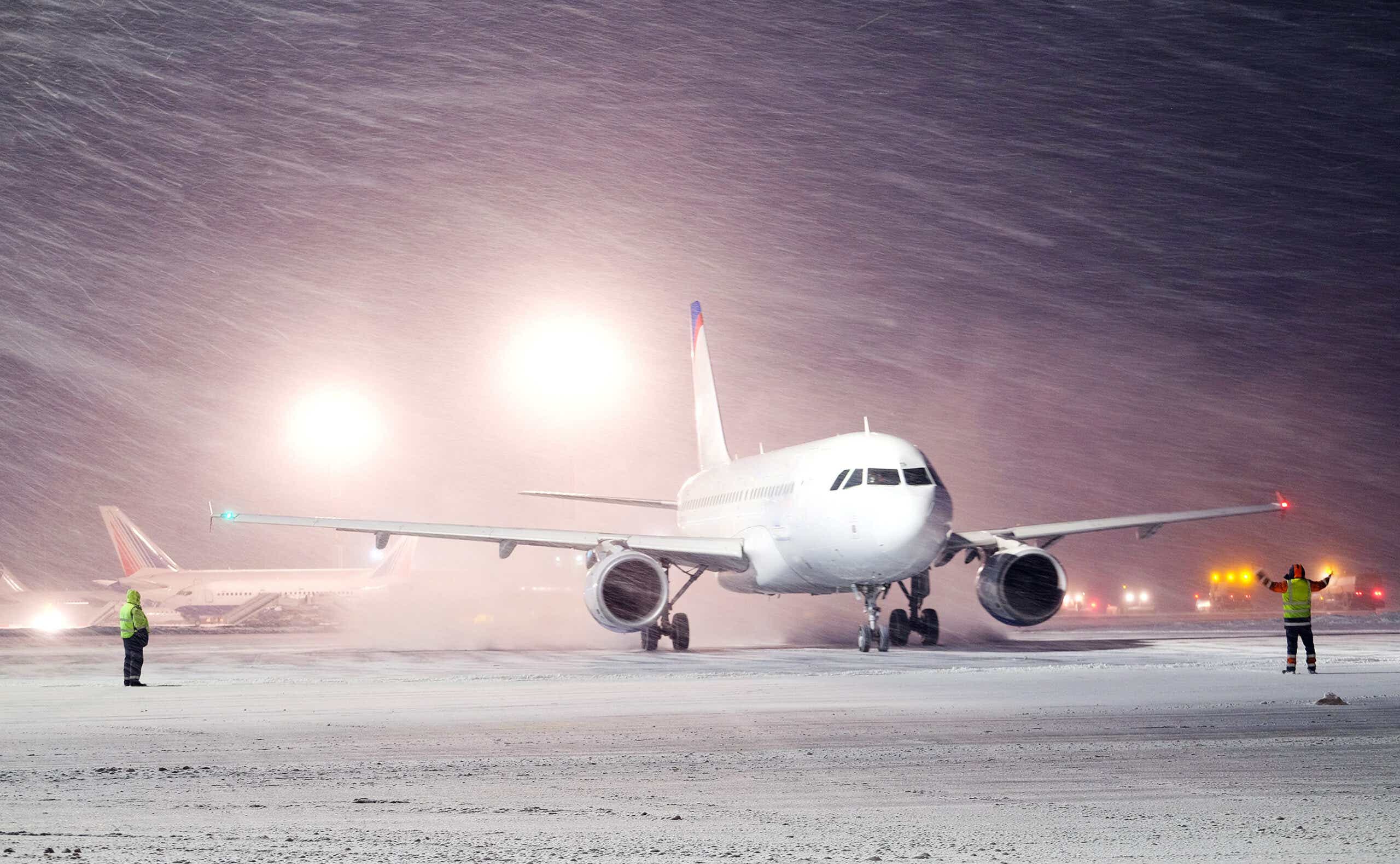It’s happening again. A few short months after a historically bad holiday travel season, thousands of flights are being cancelled once more. This time, it’s in response to a major winter storm.
According to CNN, over 1,300 flights (and counting) have already been canceled this week due to weather issues. Airports in Minneapolis, Denver, Detroit, and Chicago have experienced the most disruption. A number of airlines including Delta, Southwest, and American Airlines have begun to issue winter weather waivers for impacted customers (more information on how to find those below).
If you have a flight reservation coming up, you should definitely check in with your airline to see if you've been given a waiver, too. But besides those waivers, you might be wondering exactly how much is in your control when it comes to traveling over the next several days.
To get to the bottom of the mysteries (and, let's face it, misery) of travel, Katie Couric Media spoke with Carla Thorson, a luxury travel agent who is Katie's go-to travel advisor, about how to survive your next trip with as much of your spirit intact (not to mention, your cash) as possible.
Is flight insurance necessary?
Flight insurance can often feel like an unnecessary expense, especially since the option tends to pop up as a last-minute addition right before you check out. But it's actually important that you do get insurance, especially if you're planning to travel during a high-traffic, high-weather-risk time period, like the winter season.
"I feel [insurance] is a must," Thorson says. "A vacation is an investment and you want to protect your investment."
If you take Thorson's advice and view your travel plans as an investment you want to protect, it'll probably feel much more reasonable to take on some flight insurance to make sure you get home on time.
Plus, Thorson notes, "Travel insurance also usually covers for trip interruption due to illness, flight delays, lost luggage, and more."
It's important to note that the specific type of coverage you get from flight insurance will vary from airline to airline. For example, Delta offers pretty comprehensive flight insurance beyond just the basic flight-cancellation refund, including trip interruption coverage, trip cancellation coverage, and trip and baggage delay coverage. On the other hand, Spirit Airlines does not appear to guarantee a refund of a flight even if you do purchase insurance.
What are you entitled to (or not) if your flight is delayed or cancelled due to bad weather?
It used to be the case that the airline would take care of its passengers, no questions asked, if their flights were interrupted or cancelled for any reason. Now, it's far from a guarantee — especially if the flight cancellation or delay is weather-related.
"Most airlines will put you on another flight if bad weather interrupts your original one," Thorson says. "If it is a big storm, they sometimes offer waivers to change your flight."
That's comforting, to an extent — but it's not always easy to find an alternative flight within the correct time window when you're traveling home in a bit of a time crunch. Plus, Thorson notes, "Airlines will never refund a ticket due to weather."
So your only real option, in terms of getting help from the airline, is a flight switch, and when you consider the fact that the airline has to help hundreds of other passengers who are impacted by the flight along with you, it starts to feel a little disheartening.
With all of that said, consider this small tip: Statistically speaking, flights that depart in the early morning are less likely to experience delays and cancellations than flights later in the day. This is definitely worth keeping in mind whenever you book travel or need to swap flights.
If you do hear that you have a delay or cancellation, what's the first step you should take to quickly get a resolution?
As soon as you see your flight is delayed or cancelled, it's time to step into immediate action.
"Call your travel advisor!" Thorson says. "Travel advisors can book their client on another flight in minutes while the rest of the travelers are still waiting in line. Most of the time travel advisors get alerts when flights are delayed or canceled. It is well worth the service fee."
You should also make sure you're opted into receiving text message or email updates about your flight. This could prove to be a major benefit, especially in cases of extreme weather, as certain airlines will sometimes notify passengers of the option to switch flights prior to an official delay or cancellation when a particularly bad storm is passing through.
If you don't have a travel advisor, then it's time to read the fine print on your flight coverage, as well as your insurance coverage if you opted for that, and see what options are available to you.
Lastly, try to remember that everyone around you, passengers and airport workers and flight attendants alike, are all dealing with the same general chaos that you're dealing with — so never forget to be kind. Who knows? That kindness (especially when directed at the exhausted, overworked airline employee at the ticket counter) might just mean the difference between getting home in time for dinner or not.













